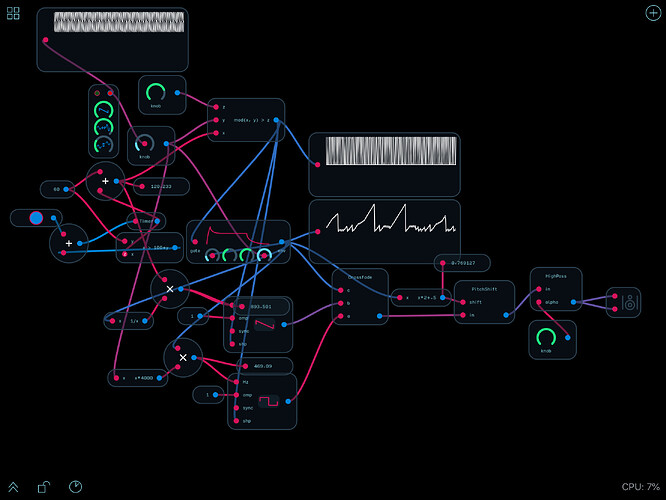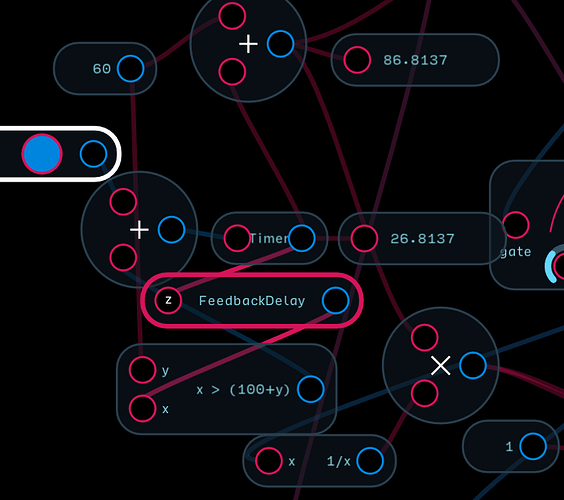This is my first Audulus patch, so please forgive my ignorance. I put together this patch from elements that are all deterministic, but the output is not. It doesn’t even appear to have periodicity. This outcome is unexpected, but actually sounds fun to play with. I’m wondering is this an intentional part of Audulus that it mimics some of the unpredictability of hardware analogue synths? Or is it an artifact of small fluctuations in available computing resources, inherent sloppiness in floating point math, or something similar? Mostly I’d like to be able to replicate the effect in the future.
Are you able to upload the patch here for us to check out? Currently this might be easier on desktop. You can also email it to me mark@audulus.com and I’ll add it to your post if you want 
It’s linked in the OP, but here’s the URL for clarity: https://s3.amazonaws.com/net.khephera-audulus/aperiodic.audulus
Nevermind I see you have the link there - I’ll check it out now!
I think this is an instance of complex results resulting from simple inputs, which I would file under chaos theory. At a certain point the line between complexity and randomness is difficult to discern.
On the topic of replicability, all you have to do is close and open the patch and all the modulations reset to the exact same value. There is a way around this by using a live input as a random source, but in general it’s easier to replicate chaos than you might think ![]()
edit: Nice patch! Sounds like you are torturing R2D2 ![]()
![]()
![]()
![]()
Check out the comments in the patch here - I think it has to do with the way your mod(etc) expression is set up as it interfaces with the LFO.
BTW - you can upload directly to the forum - no need to use your own server. Links will show up like this below when you use the upload button (pictured below)

aperiodic Bimini Road response.audulus (27.4 KB)
It might download on iOS though, it’s worth testing if you have your iPad handy.
It doesn’t  at least not on Safari
at least not on Safari

Discourse people are working on it though! We’ll have a solution soon 
Thanks for the analysis! I hadn’t found the “via” tab modules. They look handy during the buildup process.
The x > 100+y expression hooked to the timer is a kludgy way to trigger a timer reset every N seconds, setting a cycle to the timer’s modulation of the top osc’s pitch. But I’m now noticing that though it was working previously, it’s not working at this point. I’ll have to figure out what’s up with that. What does it mean when a little z appears inside the inlet of a node when you plug something into it? Does that mean it has detected a cycle (which I’m assuming is not allowed)?
The ‘z’ indicated that’s the more or less random spot that Audulus inserted a Feedback Delay to untangle calculating said recursive function. There is a Feedback Delay Node under utilities that you can use to choose for yourself where the ‘z’ is placed in the loop. I would opt for directly before or after the timer node, but some experimentation is required. That way the next time you open it, the patch will behave in the same way.

